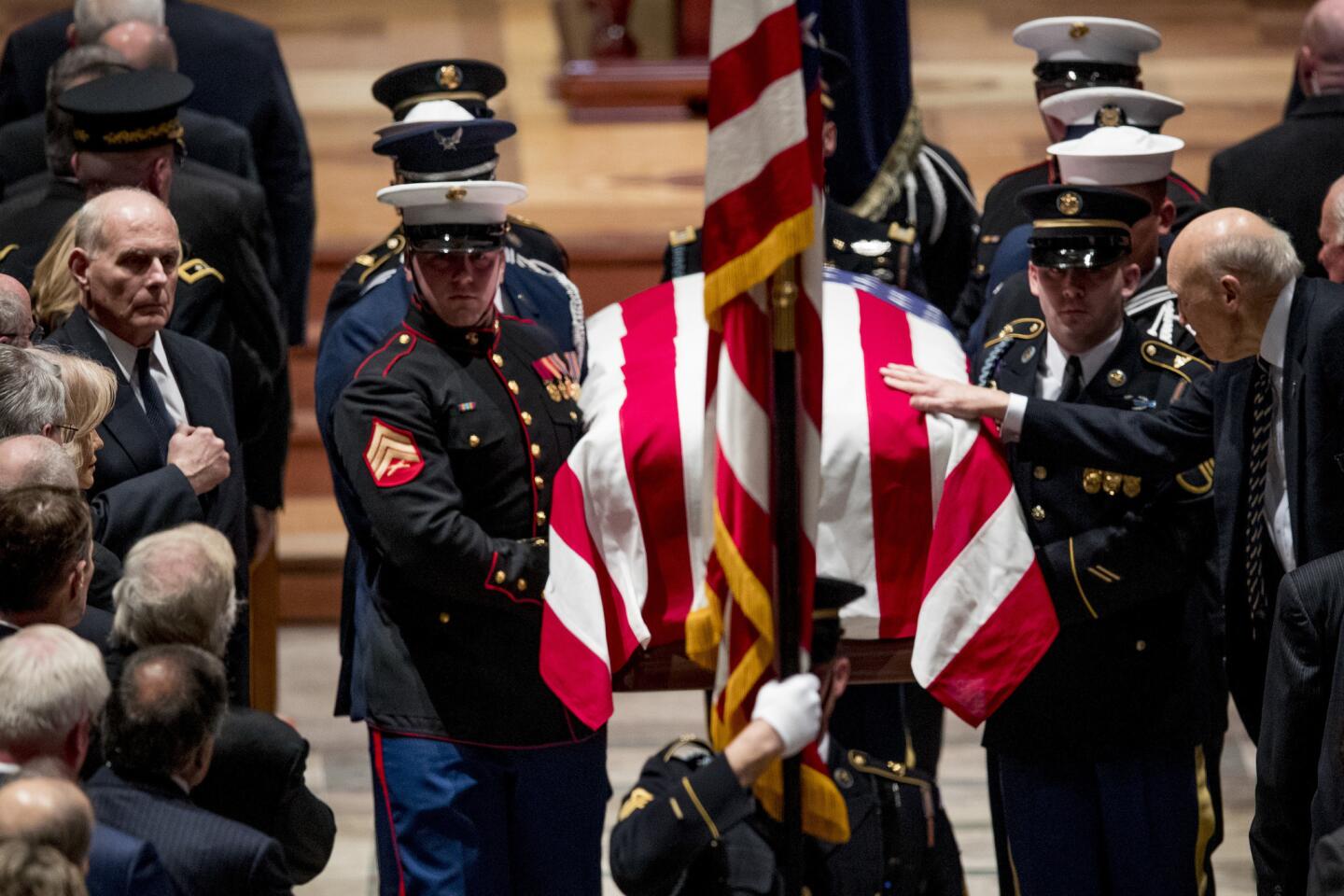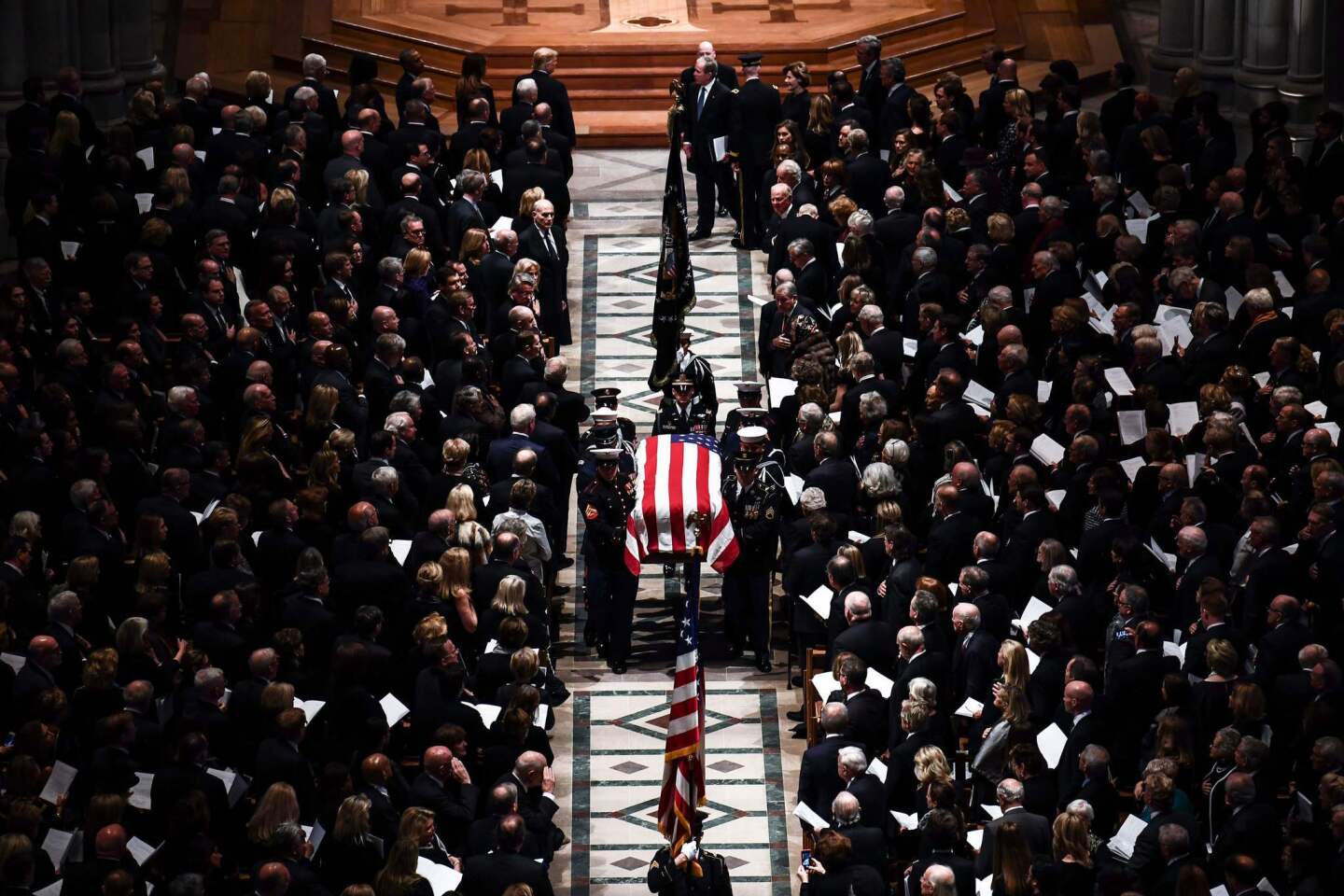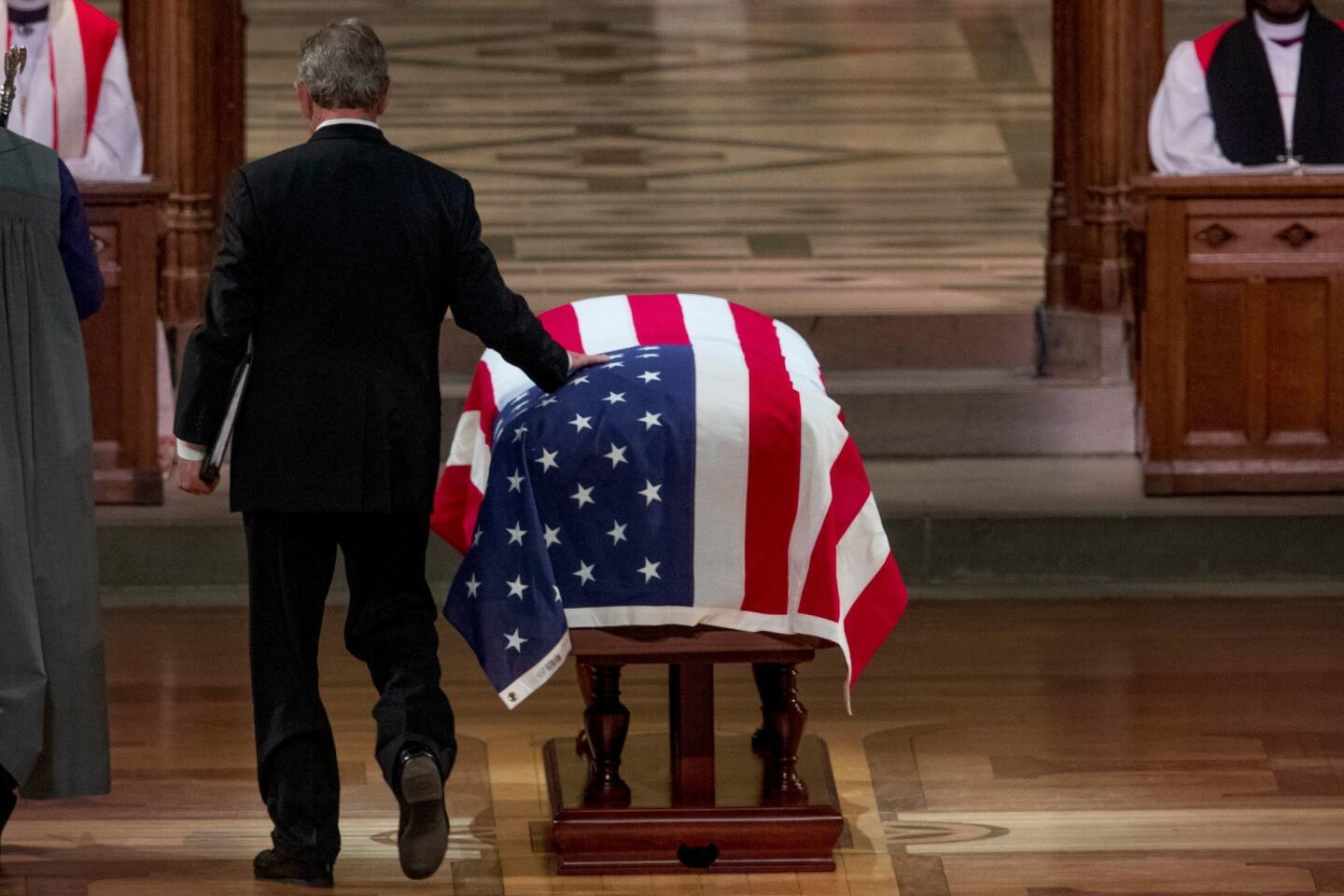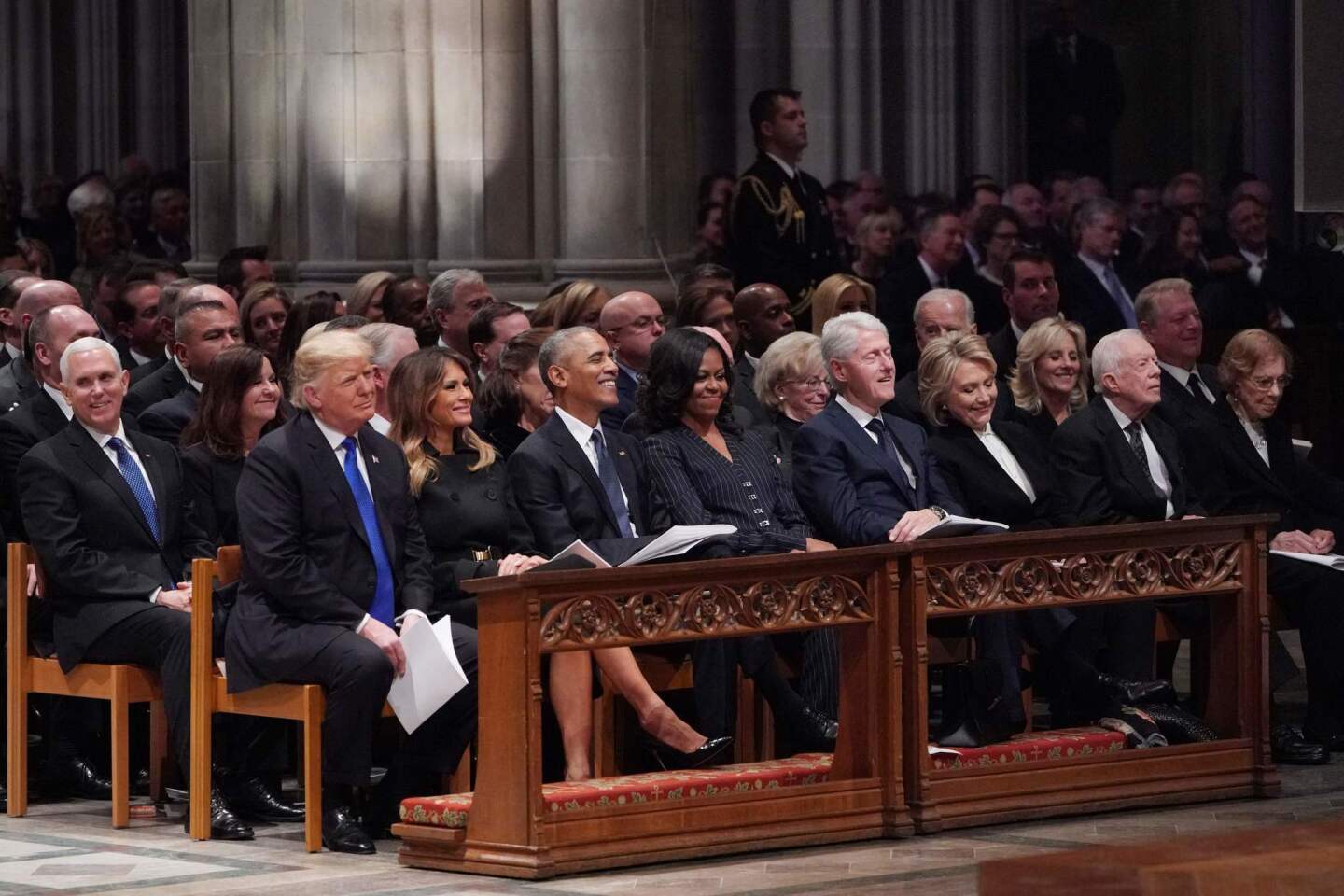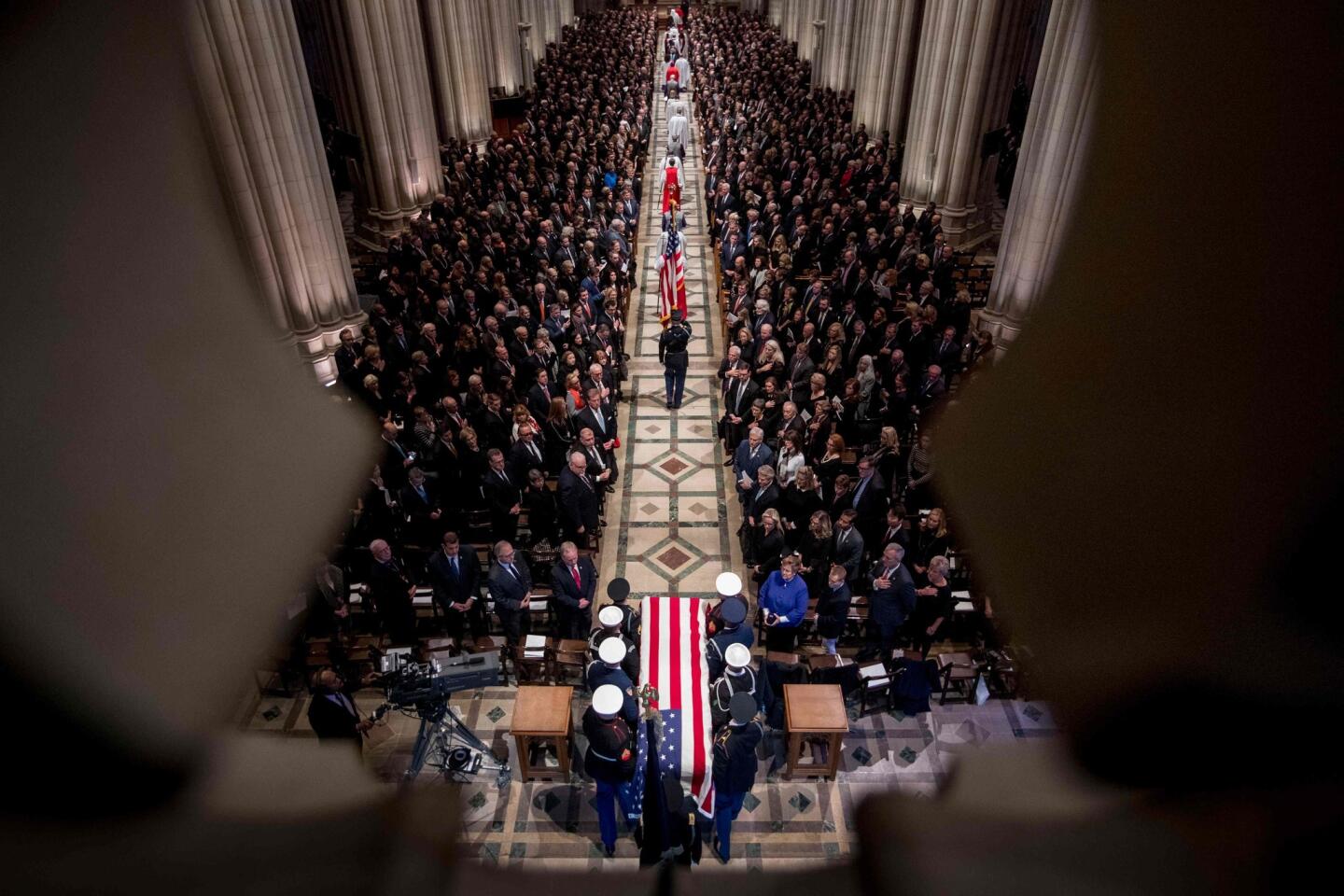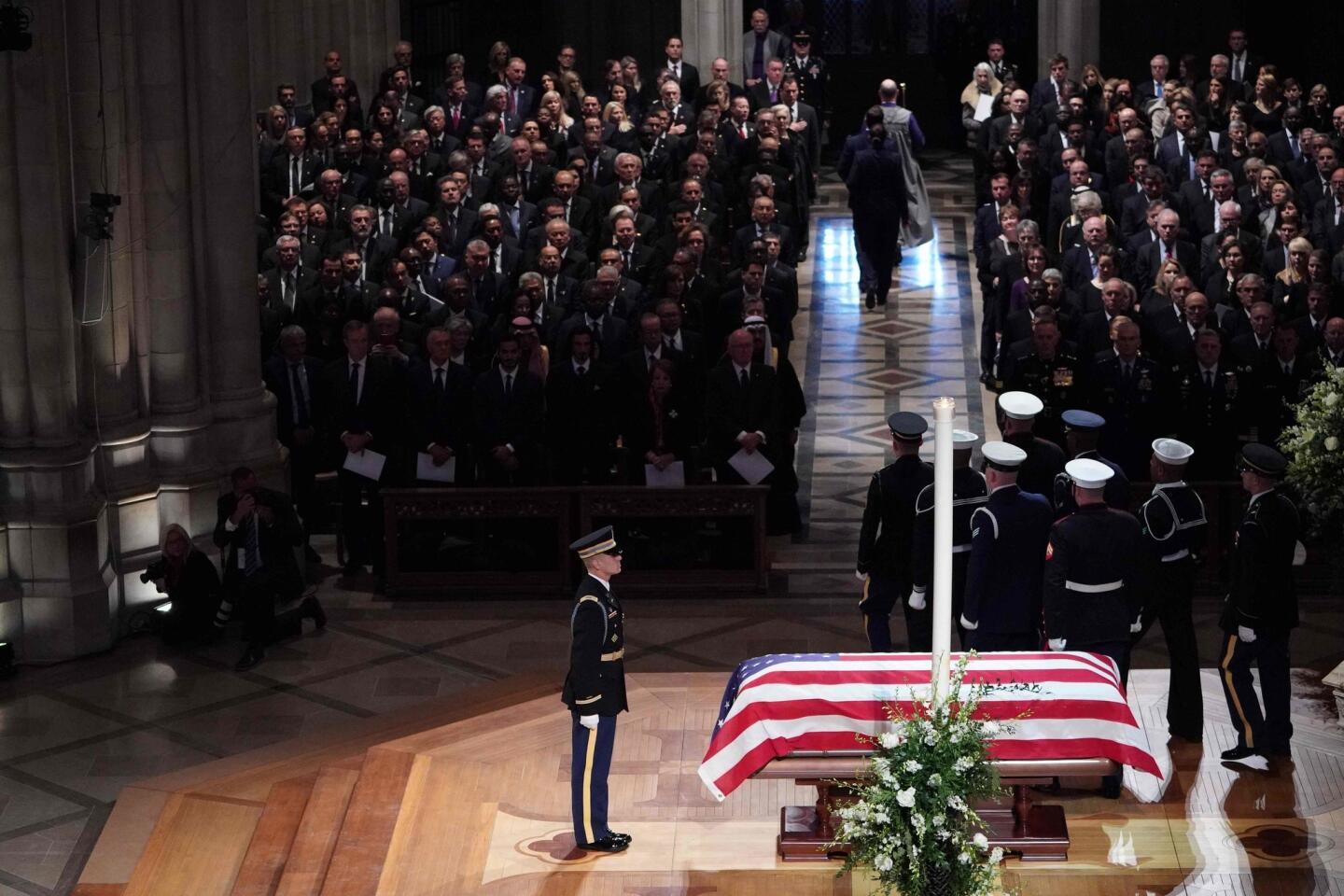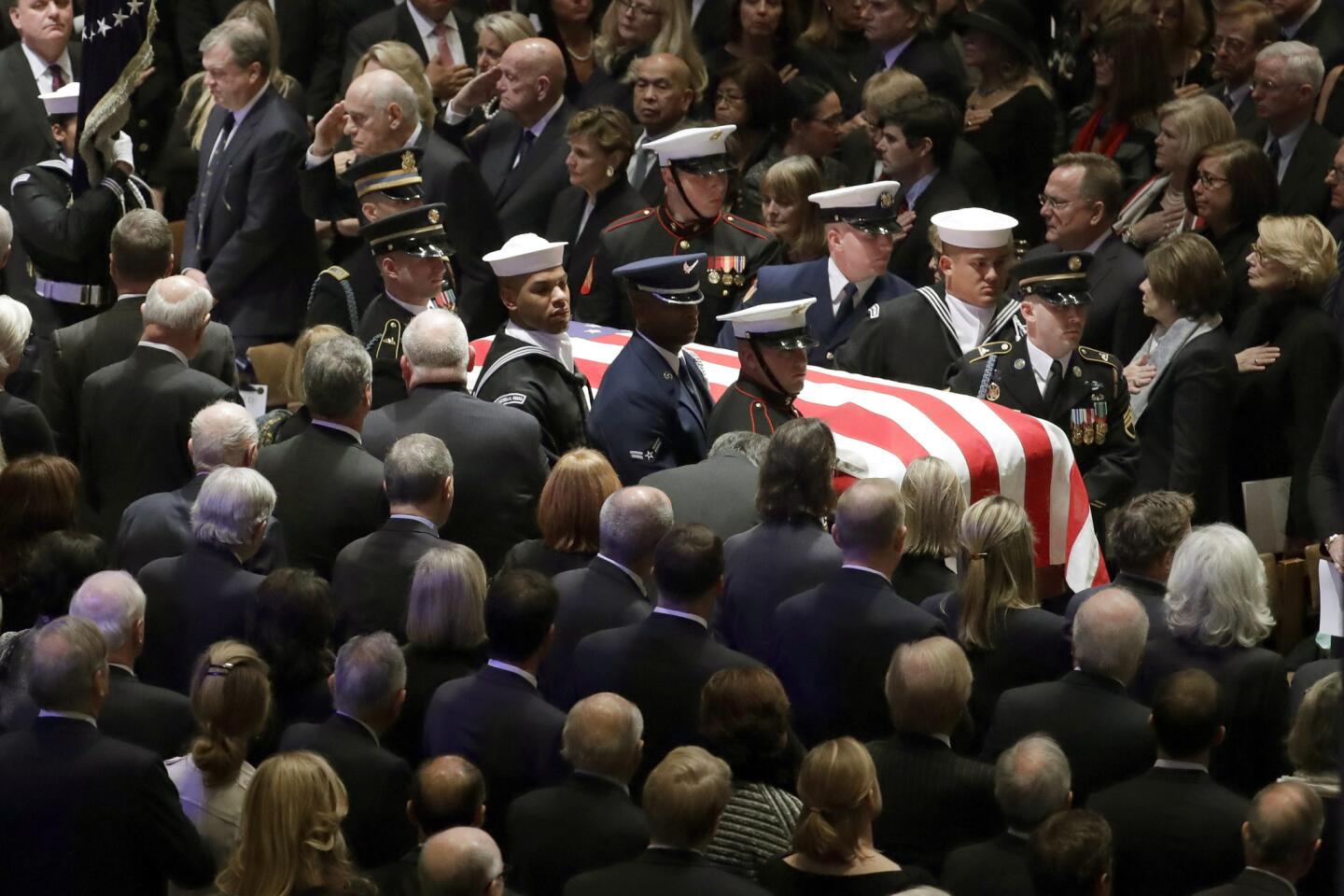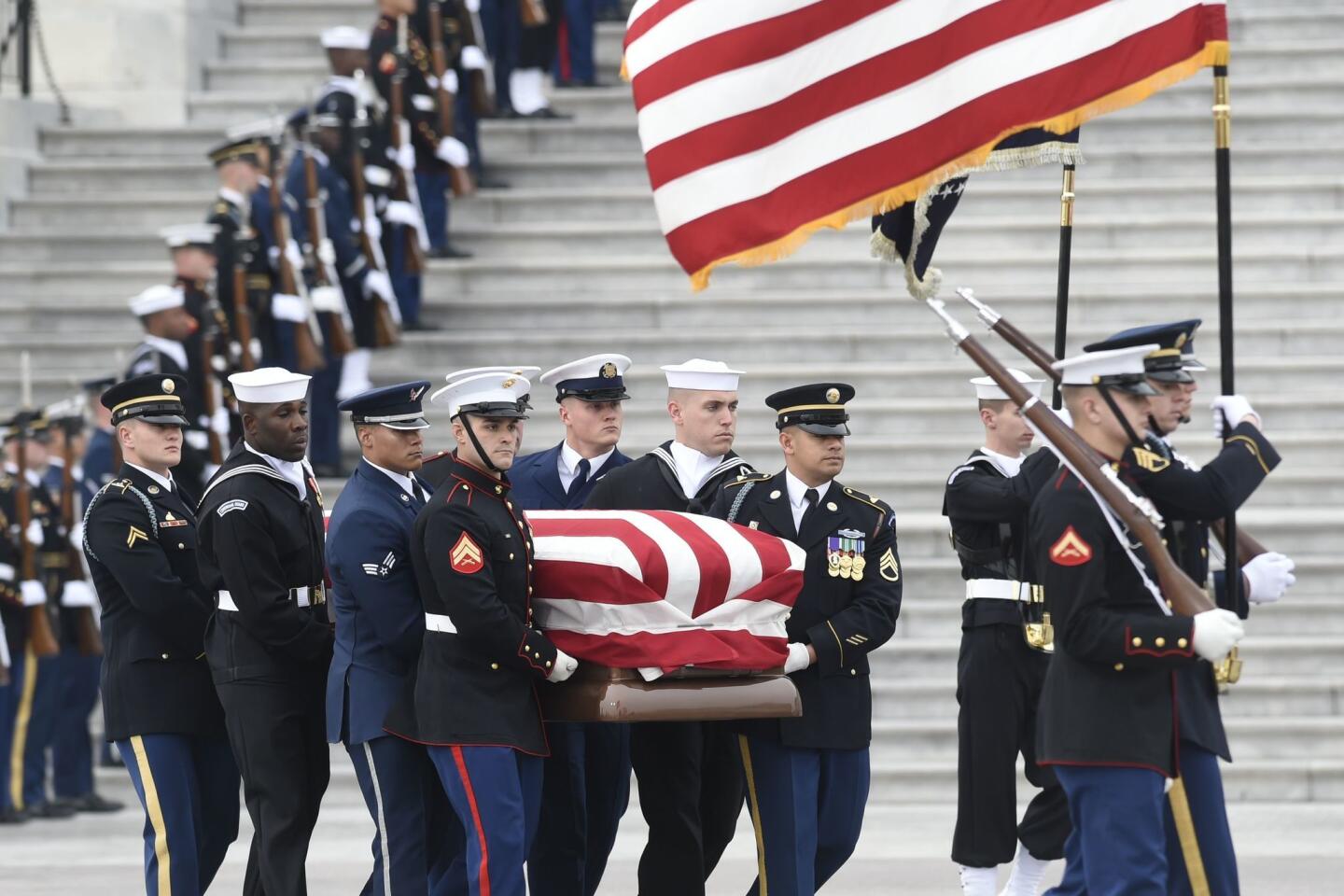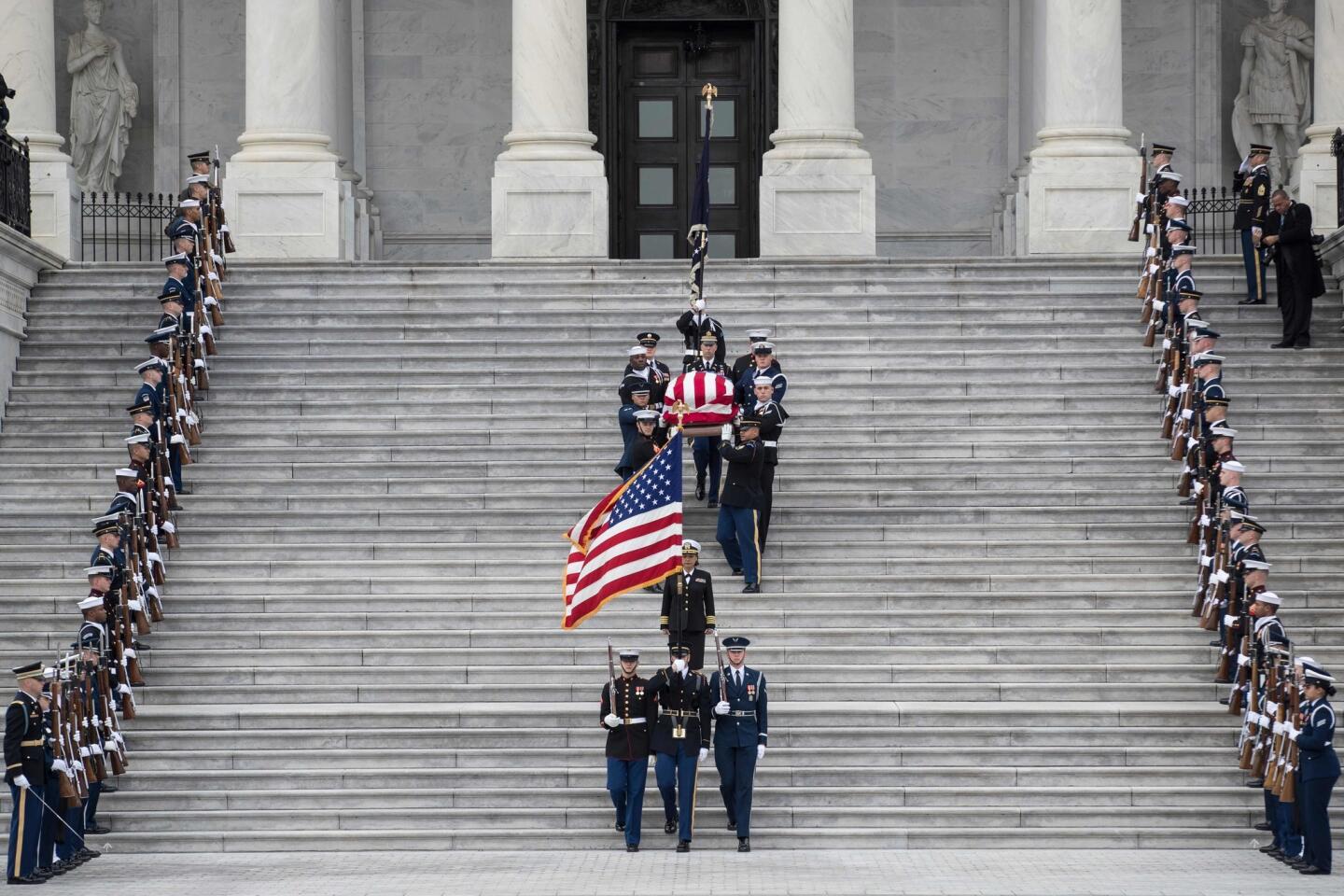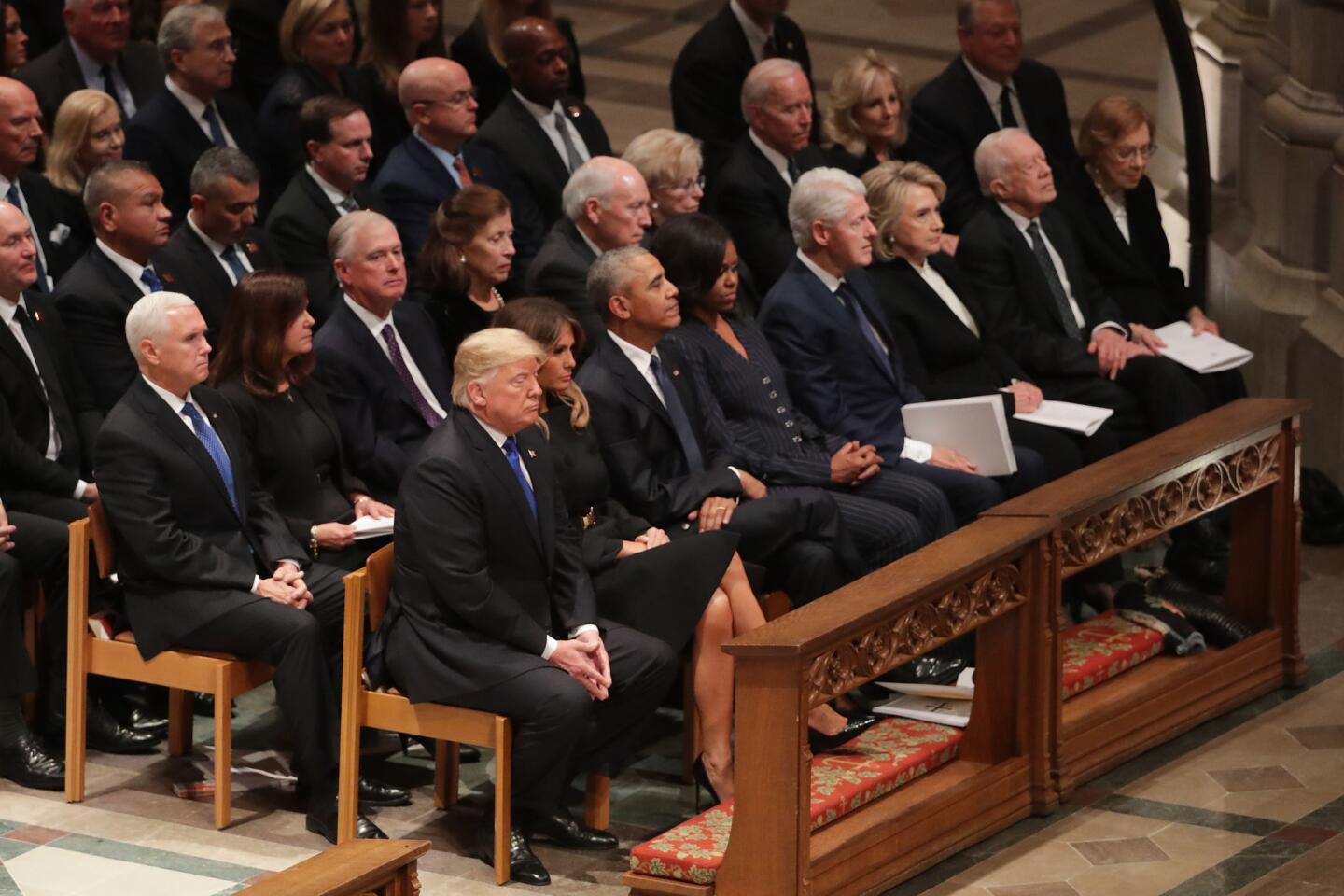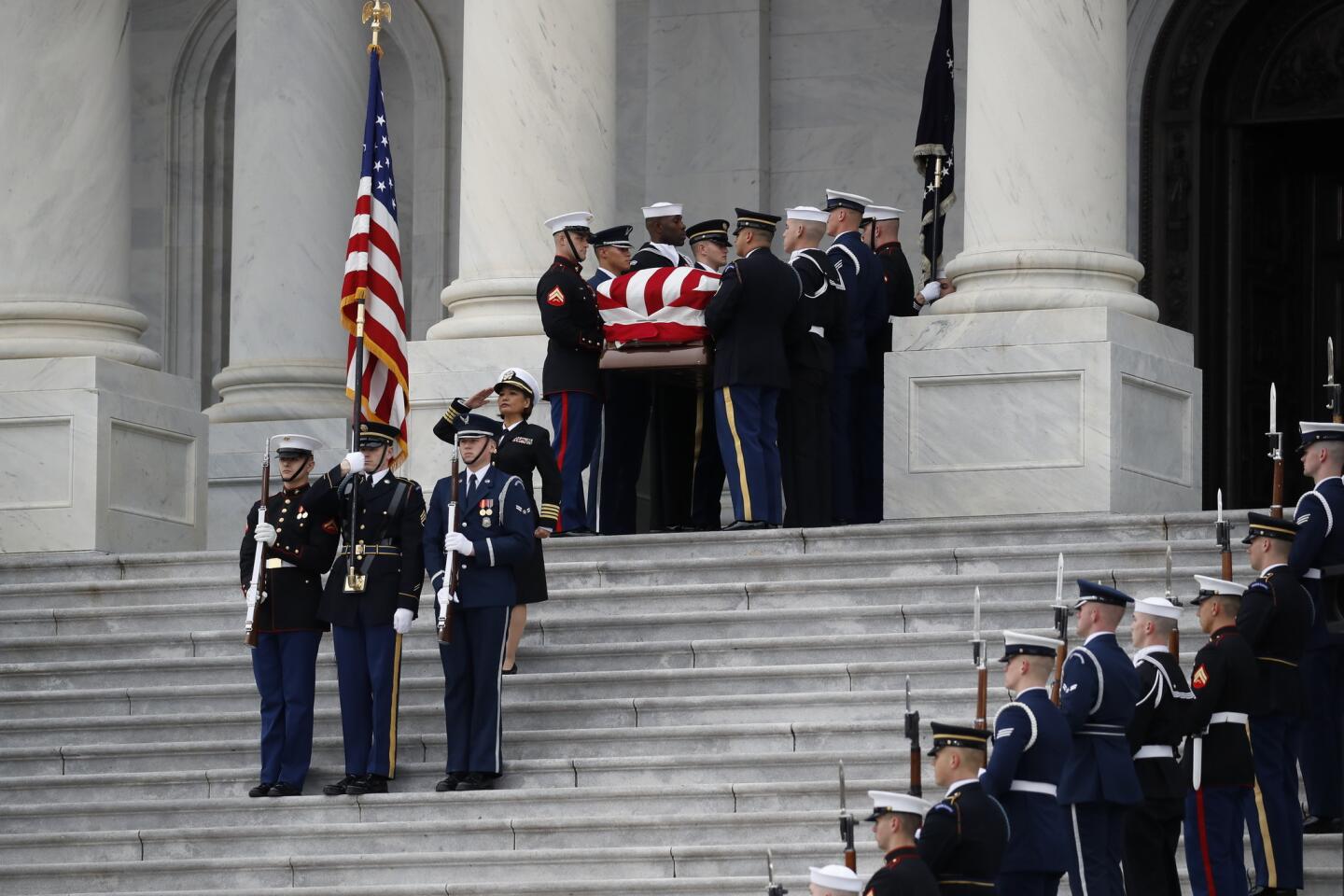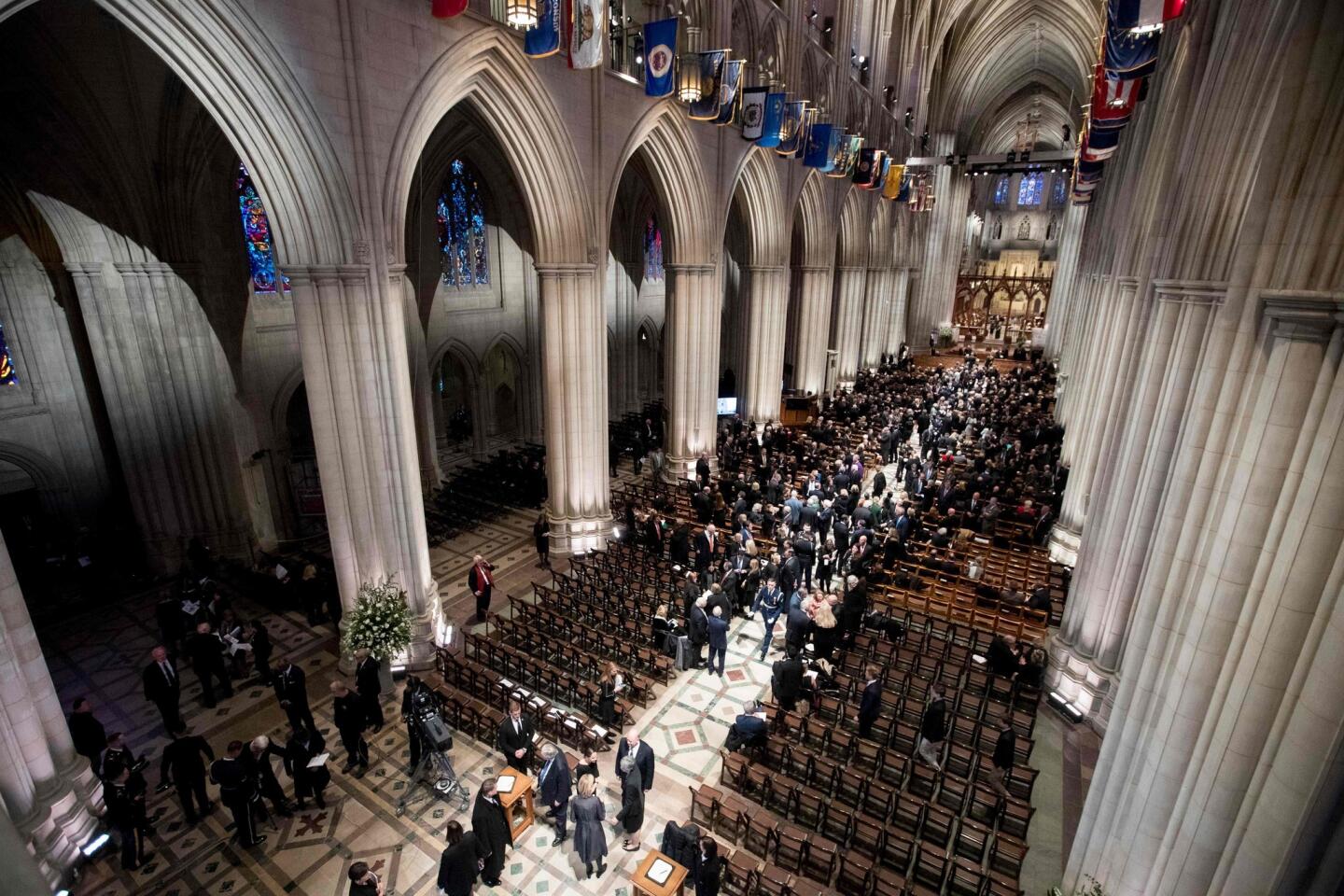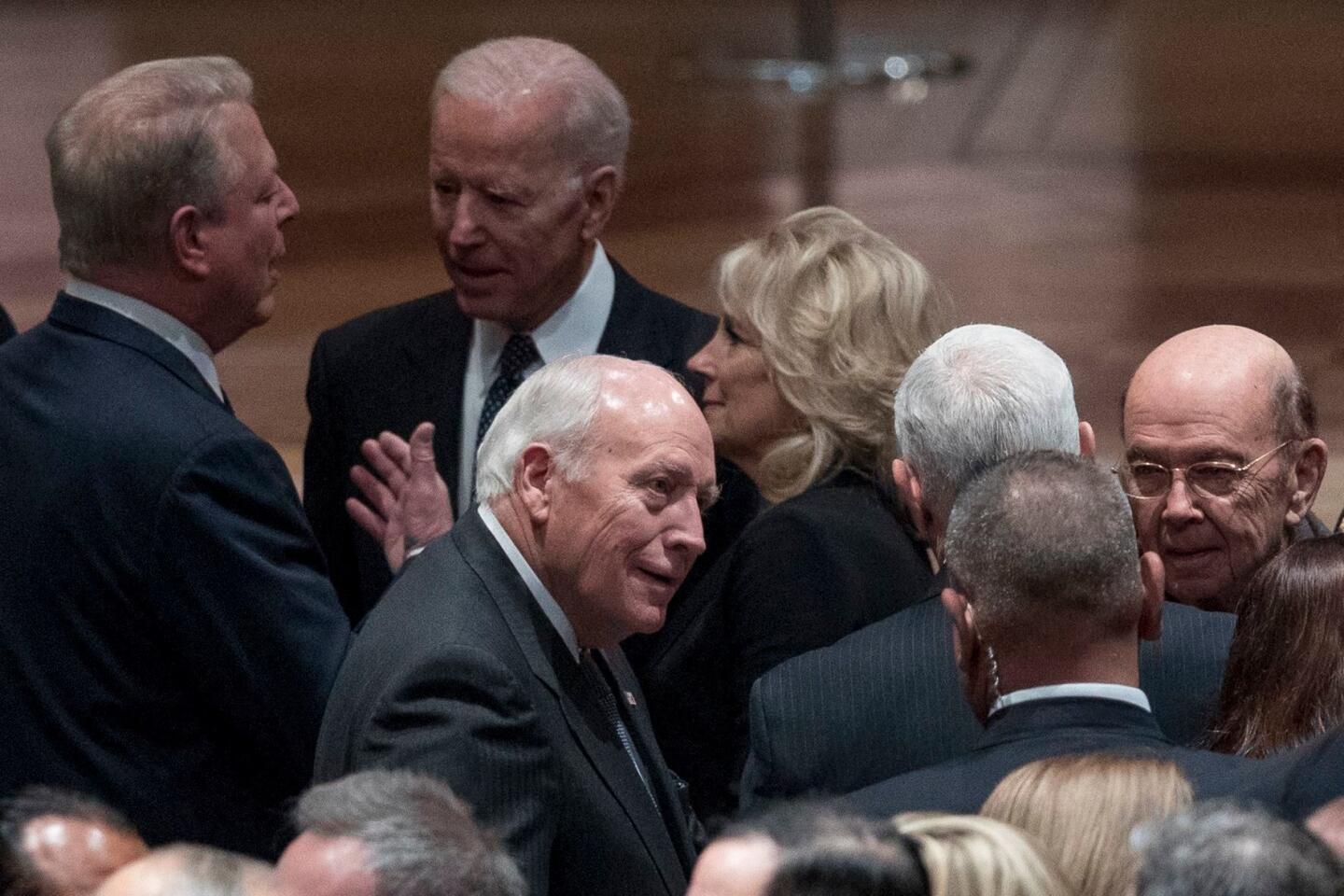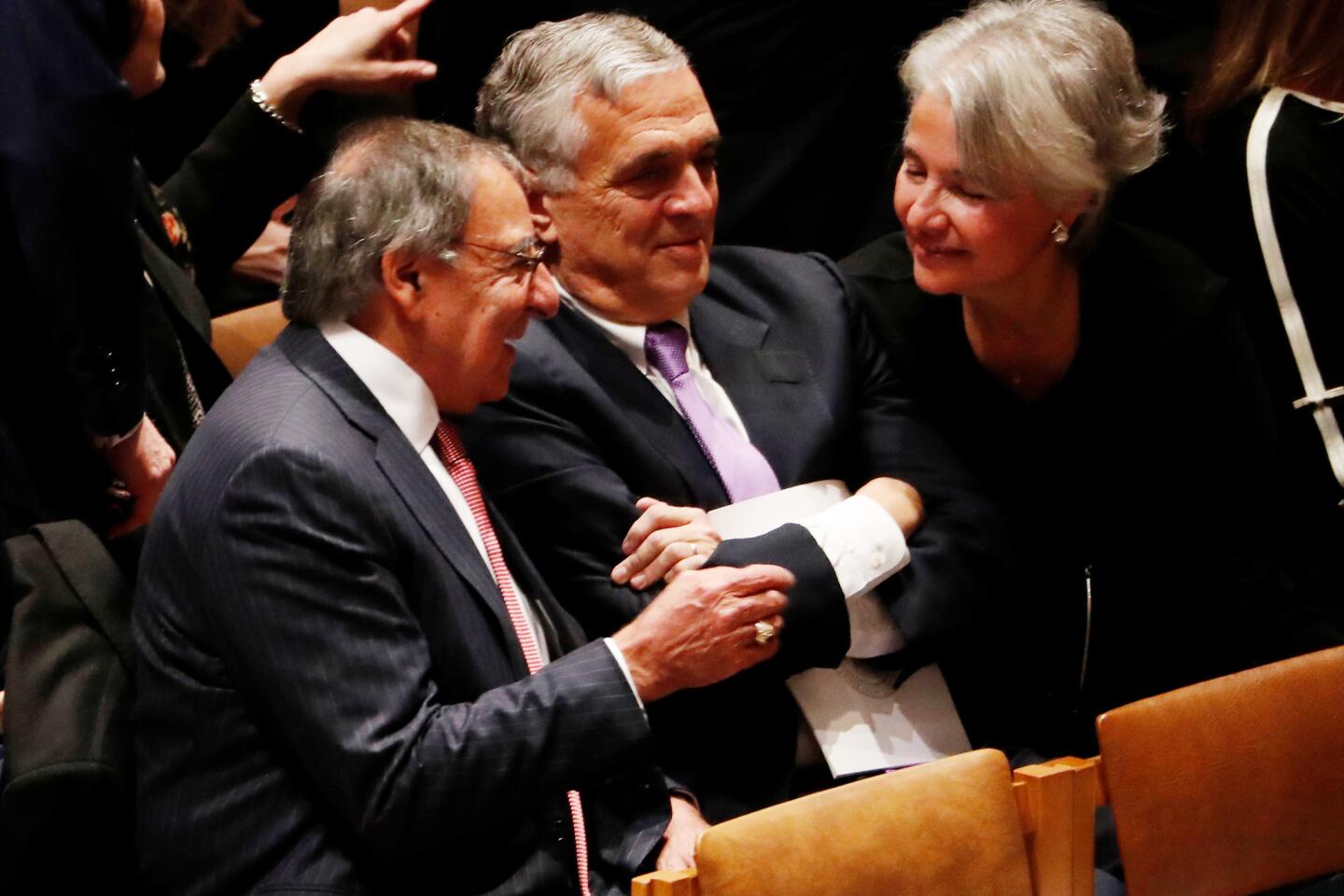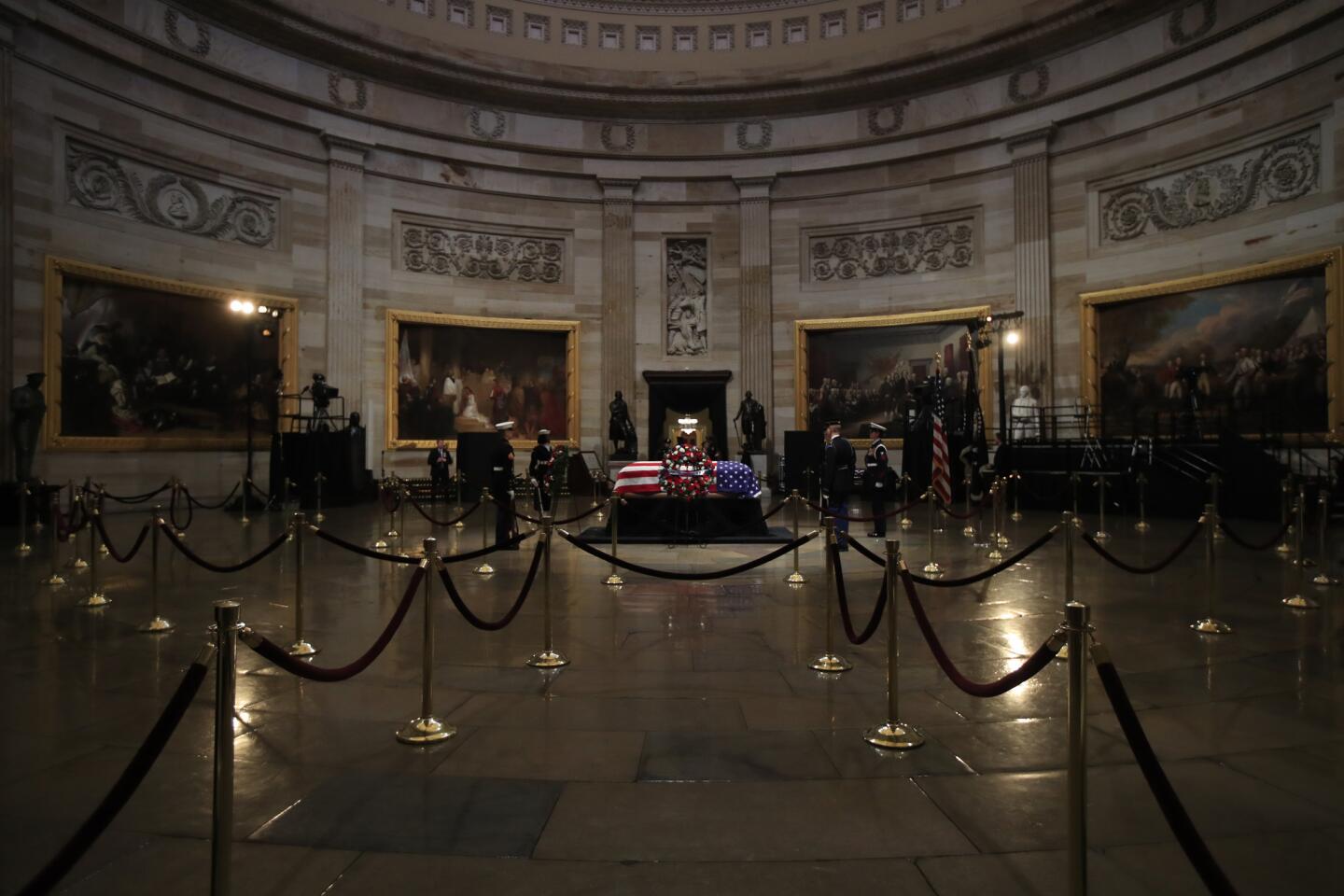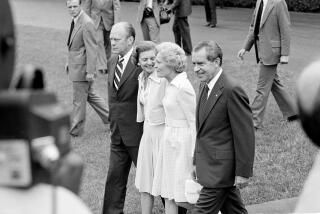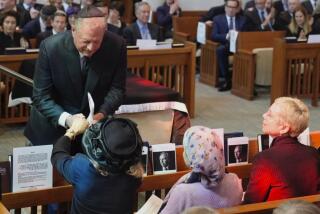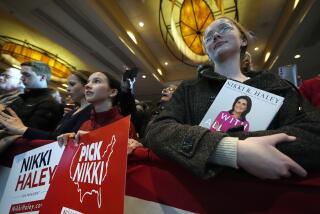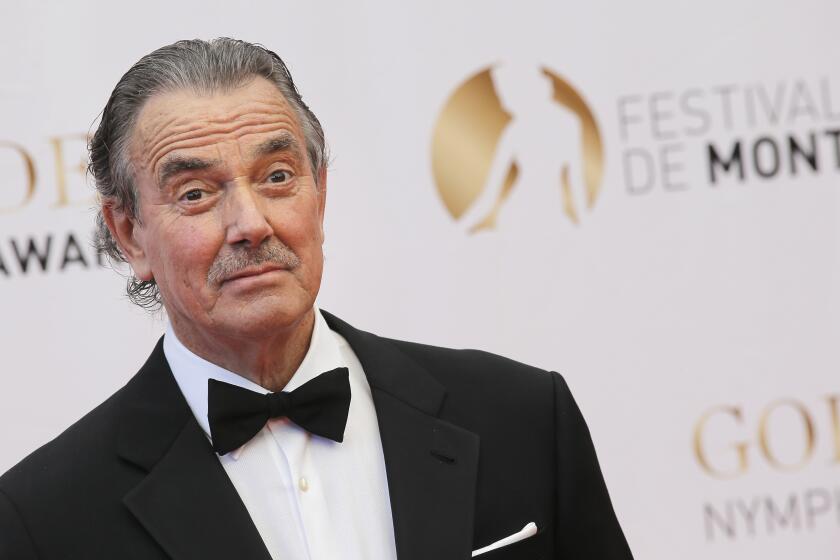Commentary: At the Bush funeral, respect and human emotion trump politics
The end of an era when leaders governed with integrity. The chance for a divided country to unite. The death of the elite WASP establishment. The Greatest Generation meets Make America Great Again.
The memorial of 41st president George H.W. Bush on Wednesday elicited myriad interpretations from a media and public searching for deeper meaning rooted in less turbulent times. The national longing for order and decisive leadership was as much a part of the funeral as the long motorcade accompanying the presidential hearse through the streets of the capital, or the Washington National Cathedral choir that sang hymns during the service bathed in the light of the church’s stained-glass windows.
No matter one’s political leanings or their feelings toward either Bush presidency, the service’s mix of centuries-old White House tradition, religious ritual and a son’s raw grief over his father’s death momentarily suspended the acrimony we’ve all come to expect from anything out of Washington and replaced it with a show of mutual respect for a family who’d lost their patriarch.
The 2 ½-hour ceremony for Bush Sr., who died Friday at the age of 94, marked the first death of a president since Gerald Ford’s in 2006. It also marked one of the first times in the past two years when President Trump, who was present at the memorial, didn’t dominate the narrative due to his beefs with half the dignitaries in the room.
Unlike the late Sen. John McCain, who had left Trump off his memorial invitee list, Bush Sr. requested 45 be invited to his service, reportedly as a way to counter the rancor ripping at the seams of the American political system.
Trump and first lady Melania Trump were seated in the front row next to Barack and Michelle Obama with the Clintons and Carters only a few seats away. Nearby, similar lineups of personalities from different sides of the aisle and political spectrum sat side by side: Clarence Thomas and Ruth Bader Ginsburg, and Dick Cheney and Joe Biden. Vice President Mike Pence was even seen chatting with former first daughter Chelsea Clinton. It was a scene that momentarily offered some of the unity onlookers hoped the funeral might provide.
Then the president shook hands with the Obamas but failed to do so with Bill or Hillary Clinton or Jimmy and Rosalynn Carter. So much for healing deep divisions.
But on any other day, the terse transaction would have been the headline. But on this day, such trivial petulance was quickly put into perspective when Bush’s flag-draped casket was carried in by uniformed military guards and set atop the same bier on which the bodies of Abraham Lincoln and generations of other presidents were laid.
He was a one-term president who, like his son the 43rd president, George W. Bush, carried the weight of a legacy fraught by ill-advised military campaigns, economic crisis and low popularity ratings. And the idea that’s been floated posthumously — Bush Sr. always did what he thought was right for the country — is also debatable depending on who you ask.
But undeniable was the reality that the late commander in chief, who came from a long dynasty of American politicians, was loved and respected by those around him.
Friends, granddaughters and dignitaries read passages from the Bible and gave personal remembrances from a podium about the casket. Former Wyoming Sen. Alan Simpson, the son of a senator himself, spoke of his first meeting with Bush in 1963. A presidential historian said that former “SNL” comedian Dana Carvey summed up the late president’s demeanor best when he said a key to a good impersonation of H.W. Bush was acting like “Mr. Rogers trying to be John Wayne.”
But finally, it was a eulogy by his devoted son George W. that elevated the service from a ceremonious and respectful remembrance of a former leader to an emotional show of loss and grief.
Bush extolled his father’s unflagging devotion to country as a WWII veteran and president, joked about his dad’s dancing skills (he was no Fred Astaire), remembered the devoted relationship between Dad and Mom, then broke down and cried when recalling the last words he and his father said to one another: I love you. I love you too.
He patted the casket as he returned to the pews, where former First Lady Laura Bush handed him a packet of tissues from her purse. He wiped his damp cheeks more than once before the service concluded.
After much prayer and more hymns, Bush Sr.’s casket was carried out of the cathedral and enveloped in another processional. It wound through the streets of D.C. to the executive tarmac, where Air Force One was waiting to take 41 to his final resting place in Texas.
And then, the media and the nation were back to Washington as we know it: the scandals, FBI reports, the news of potential election meddling.
But for a rare moment, the theatrics of D.C. were upstaged by the very human need to mourn. The interpretations of what Bush Sr.’s passing represents — the death of decorum and civility, the loss of a gentler time, etc. — will likely continue and the chances for a deeper reconciliation of the country seem slim.
ALSO
Why the ‘P’ word — propaganda — might be best for what we’re seeing on our TV screens
Trump turns his news conference into a post-election spectacle
The rise and fall of Megyn Kelly and what it says about the state of the media
More to Read
The complete guide to home viewing
Get Screen Gab for everything about the TV shows and streaming movies everyone’s talking about.
You may occasionally receive promotional content from the Los Angeles Times.
